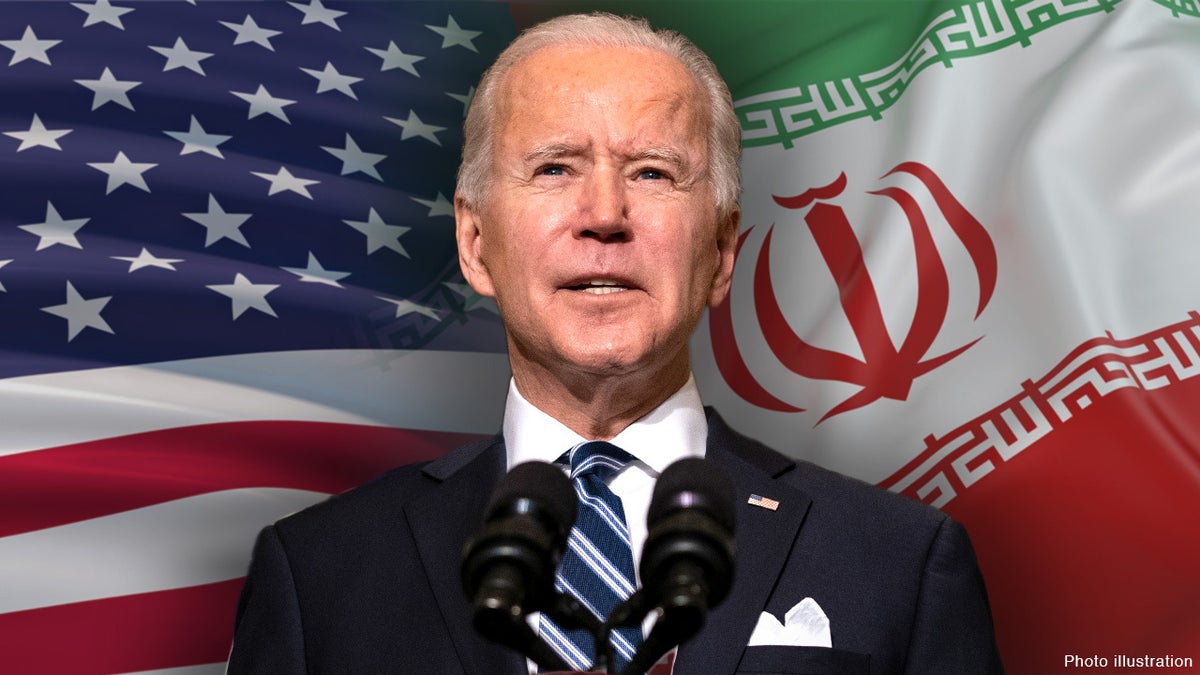Biden on back foot as Iran proxies hit US troops in Syria, can 'expect more, not less attacks'
The U.S. responded to an attack by an allegedly Iran-backed group with precision missile strikes, which then prompted a retaliatory attack on an American base in Syria on Friday.

The U.S. can no longer take a reactive stance toward Iran after a new Pentagon report revised the total number of troops killed by Iran-backed groups continues to rise.
"Iran’s regional strategy of working through proxies and carve outs is continuing unabated," Behnam Ben Taleblu, a senior fellow and Iran expert at the Foundation for Defense of Democracies, said. "The open question is, when will the Biden administration ditch tit-for-tat strikes and work to rollback Iran’s Shiite militia network in the heartland of the Middle East?"
President Biden ordered a series of retaliatory precision airstrikes in Syria on Thursday, reportedly killing eight Iranians, after Iran’s Islamic Revolutionary Guards Corps crashed a UAV into a building, killing a U.S. contractor and wounding six other Americans.
U.S. intelligence assessed the UAV that crashed into a coalition base, which killed the contractor, was of Iranian origin — so President Biden authorized the military to retaliate, the Pentagon said. The Pentagon said the U.S. took "proportionate and deliberate action" that limited the risk of escalation in its targeted response.
Taleblu said that such a reactionary response will only lead to further attacks and more deaths.
"Washington can expect more, not less, drone and rocket attacks on U.S. positions," he continued. "Washington needs a better response ratio to Iran-backed attacks, be they in Syria or Iraq or emanating from one domain but striking the other."
"Pulling punches in Iraq and doubling down in Syria is unlikely to change Iran’s regional calculus."
A 2019 report from the Pentagon put the total number of Americans killed in Iraq by Iran-backed groups at around 608 – a 20% increase from previously reported numbers.
Rep. Andy Barr, R-KY, of the House Foreign Affairs Committee, told Fox News host John Roberts on "America's Newsroom" Friday that the Biden administration has shown that "weakness invites aggression."
"When you are engaged in an effort to provide sanctions relief to the Mullahs in Tehran, this invites aggression," Barr argued. "The sanctions relief that the Biden administration is proposing to deliver to Tehran would actually embolden these proxy terror groups and it would help Iran finance the very terrorists who attacked our assets and American soldiers just last night."
Taleblu concurred with that view, saying that U.S. policymakers at the least must make sure deployed troops have adequate air defense cover to deny and defeat the persistent rocket and drone threat.
Bill Roggio, managing editor of the Long War Journal, told Fox News Digital that the situation in Syria in particular is difficult since the days of a more heavy-handed presence in the region "are long gone."
"As critical as we could be with [the occupation of] Iraq, there are at least Iraqi military units and Iraqi political groups that we could work with," Roggio said. "In Syria, there’s not a lot of good allies."
To create a more decisive military outcome in the country would require "tens of thousands, if not hundreds of thousands of troops" and a "long-term occupation," which America has no interest in after the results in Iraq and, more particularly, Afghanistan, according to Roggio.
"We want to keep the troop numbers real low in Syria and Iraq, and in order to do that, you have to make compromises, and then in order to make compromises, you compromise the security of the troops you do have there and you put them at risk," he added.
Lisa Daftari, a Middle East expert and the editor-in-chief of The Foreign Desk, said that Iran’s attacks via proxy groups on U.S. targets serve as both a message to the White House and a "flexing tool" to convey to the Iranian people that Western sanctions and efforts to isolate Tehran "will not work."
"Iran-backed militias have made 29 attacks against U.S. targets in Syria and Iraq just since October without any show of force by American forces," Daftari explained.
"The fact that there has not been any retaliation or consequences to these targeted hits on American assets tells the mullahs that the U.S. lacks resolve or strength and would rather tread more gingerly through various routes of diplomacy," she continued. "While the White House can make the argument that they’re not looking to escalate, more damage is being done through its passive response."
"The mullahs will find and declare strength where they can, and right now, the U.S. is enabling them."
The Pentagon and National Security Council did not respond to Fox News Digital requests for comment by time of publication.
Fox News' Liz Friden contributed to this report.






















